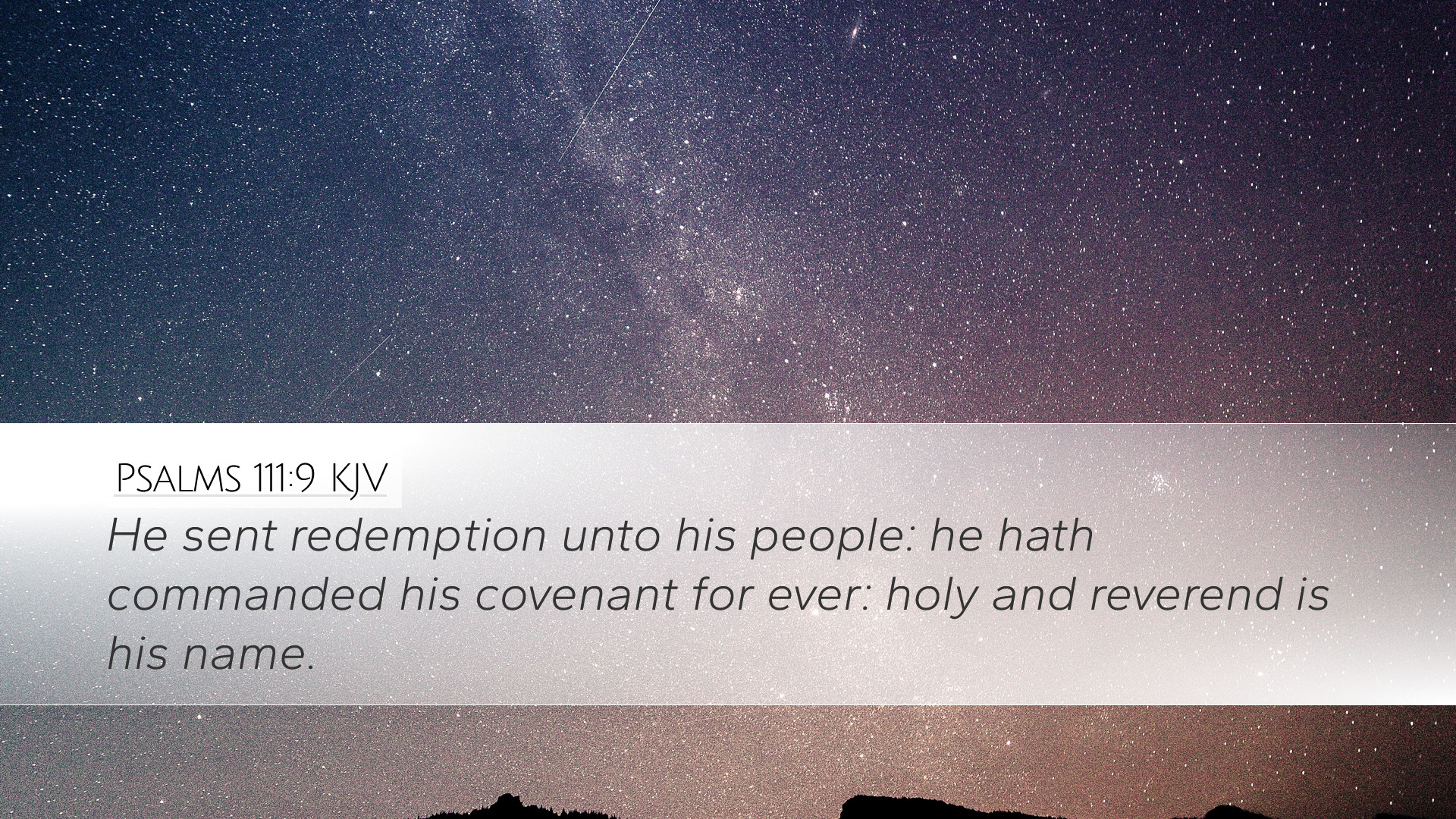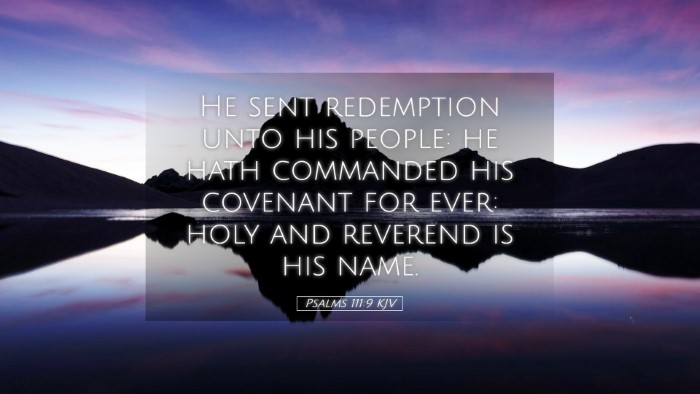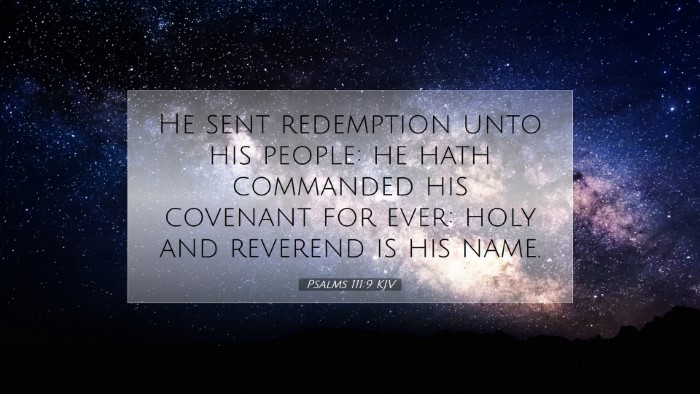Psalms 111:9 Commentary
Bible Verse: "He sent redemption unto his people: he hath commanded his covenant for ever: holy and reverend is his name."
Introduction
The verse Psalms 111:9 encapsulates the profound themes of redemption, covenant fidelity, and the holiness of God. It serves as a declaration of God's actions towards His people and a reminder of the sacred nature of His name. This commentary synthesizes insights from renowned public domain commentaries, drawing from the works of Matthew Henry, Albert Barnes, and Adam Clarke to provide a comprehensive exploration of this scripture.
Thematic Analysis
Redemption
Matthew Henry emphasizes that the sending of redemption is a significant revelation of God’s love and mercy. He notes that this act of redeeming signifies the liberation of God’s people from bondage, pointing to both historical deliverance from Egypt and the ultimate redemption through Jesus Christ. In this context, redemption is not merely a one-time event but an ongoing theme woven throughout Scripture, highlighting God's continual saving grace.
Covenant Faithfulness
Albert Barnes explores the phrase "he hath commanded his covenant for ever." He asserts that this signifies the enduring nature of God's promises. The covenant is framed as an ever-present commitment that God maintains with His people, which fosters a sense of security and hope. Barnes argues that this reflects on God's unchanging character; He is always faithful to His word, and His covenants are not easily broken or forgotten.
Holiness of God
Adam Clarke discusses the phrase "holy and reverend is his name," which he notes is a call to recognize God's supreme holiness and authority. Clarke elaborates that the term 'reverend' signifies awe and respect, suggesting that God's name embodies attributes that are worthy of veneration. According to Clarke, to understand God's holiness is to acknowledge His separateness from sin and corruption, leading to a profound reverence among believers.
Implications for Understanding God’s Nature
The themes of redemption, covenant, and holiness in Psalms 111:9 are critical for grasping the fullness of God’s nature. Collectively, they paint a portrait of a God who is actively involved in His creation, who is faithful to His promises, and whose character commands respect and reverence.
Historically Rooted Redemption
Henry notes that the historical context of redemption—specifically God's deliverance of Israel from Egypt—provides a tangible representation of spiritual redemption. This historical reference extends to the New Testament where Christ's sacrifice is viewed as the ultimate act of redemption, elevating its significance for believers across the ages.
The Everlasting Covenant
The eternal nature of God’s covenant implies a deep-rooted relationship with humanity. Barnes points out that understanding this covenant informs Christian beliefs about salvation. It reveals God as both protector and guide, reassuring believers of their identity in Him. This divine relationship invites further theological reflections on grace, mercy, and human response to God’s faithfulness.
The Call to Reverence
Clarke's insight on reverence invites us to examine our own approach to worship and relationship with God. The acknowledgement of God’s holiness should lead to a lifestyle characterized by reverence toward Him. This challenge to honor God transcends mere acknowledgment and calls for a heartfelt response manifested in worship, prayer, and obedience.
The Role of Worship
The integration of redemption, covenant, and holiness naturally leads to a discussion on worship. Worship becomes a response to who God is and what He has done. This verse encourages believers to engage in worship not only as a duty but as a joyful acknowledgment of God’s saving works and His unfailing commitments.
Practicing Worship
- Gratitude for Redemption: Regular acknowledgment of what God has done for us in Christ fosters a heart of gratitude.
- Commitment to the Covenant: Believers are invited to reflect on their commitments to God, embracing the sustaining power of His everlasting covenant.
- Approaching with Reverence: Acknowledging God’s holiness should transform how worship is conducted, encouraging worshipers to approach Him with deep reverence and awe.
Conclusion
Psalms 111:9 provides a rich tapestry for understanding the character of God and our appropriate response to Him. It reminds us of the transformational power of redemption, the security offered through His covenant, and the profound respect due to God's holy name. As we reflect on this verse, may we be inspired to live out these truths in our theological explorations, pastoral applications, and daily practices of faith.


